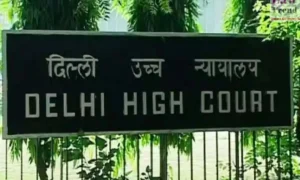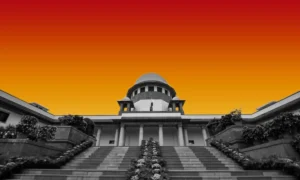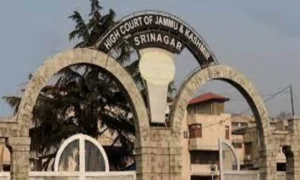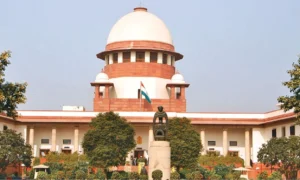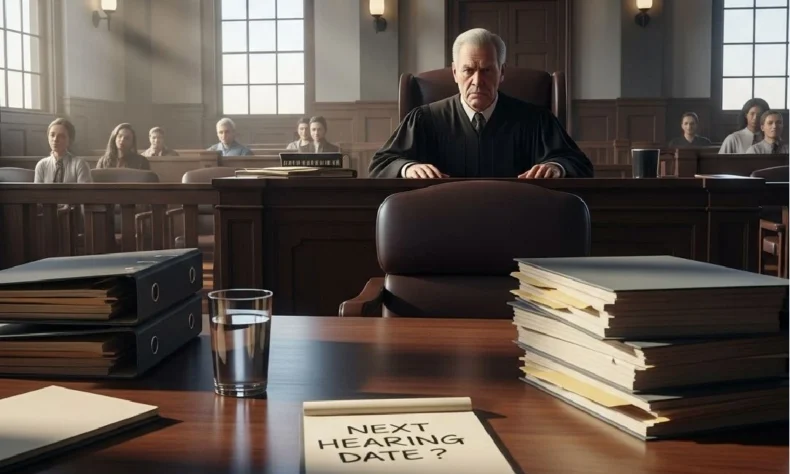
By Dilip Bobb
The Supreme Court judgment on speedy trials which related to a particular case the apex court was hearing has been covered in another article in this issue, but what stood out was the sentence which said: “If it is the lawyer alone who delays trial, the court will be free to appoint an amicus curiae to proceed with the trial. In appropriate cases, the court is permitted to impose costs on the accused commensurate with the expenses the witnesses have incurred to attend the court proceeding.”
There are 5.34 crore cases pending across all courts in the country, but the National Judicial Data Grid numbers reveal an astonishing fact: a majority of the reasons for inexplicable delays, 66,03,680 to be precise, come under the heading of “Counsel not available”. That means over 62 lakh cases have been delayed because the client’s legal representative failed to appear for various reasons: in some cases, the reasons given was that the counsel was travelling or dealing with another case in a different court.
In many cases, it boiled down to the counsel demanding higher fees or not bothering to appear in court since the client, or one of his/her clients, were unable to pay the fees demanded.
In high-profile cases or those involving constitutional matters, the courts can appoint an amicus curiae (friend of the court) as it did in the case involving Ajmal Kasab, the terrorist involved in the 2008 Mumbai attacks. No advocate was willing to represent Kasab, so the Supreme Court appointed senior advocate Raju Ramachandran as amicus curiae to argue Kasab’s case against conviction and the death sentence, That, however, was an exceptional case, but the non-appearance of counsel in cases that are not as consequential, as the numbers show, is a chronic problem and a major contributor to the delay in disposal of cases.
The Supreme Court, to counter the problem, has directed High Courts to prevent adjournments solely due to unavailable counsel, urging them to consider appointing amicus curiae or cancelling bail if a lawyer is found colluding with clients to delay proceedings. According to court records, one of the prime reasons given for counsel unavailability is to do with intentional delays: lawyers often deliberately cause delays by not appearing or failing to present documents, sometimes in collusion with clients. Again, the Supreme Court has declared that trials cannot be postponed simply because a lawyer is unavailable, except in cases of bereavement. Where accused individuals and their lawyers are found to be collusively delaying proceedings, courts have the authority to cancel bail.
Another oft-quoted reason is counsel being out of station. This was the case in the judgment in Ram Siromani Tripathi & Ors vs State of UP & Ors, where the Supreme Court, in a one-page order, has ruled that “counsel being out of station” is not a ground for granting an adjournment. The Court then went on to say that since there was a finding that “being out of station” is not a valid ground for an adjournment “under no circumstances, [an] application for restoration shall be entertained”. As the bench observed; “For now, it appears that the only remedy left for Ram Siromani Tripathi (and others) is to sue his lawyer for professional negligence. But then, what if his second lawyer also goes out of station? Meanwhile, lawyers and senior counsel may now start “falling ill” more often than going out of station.”
Rule 1 (1) of Order XVII of the Code of Civil Procedure (which deals with adjournments) states that the Court may grant an adjournment to “a party” if “sufficient cause” is shown, and that the reason given of a party being engaged in another court is not a ground for adjournment—if it can be shown that the party did not have adequate time to engage another pleader.
Justice CK Thakker, writing for a bench of two judges, observed that: “…when a party engages an advocate who is expected to appear at the time of hearing but fails to so appear, normally, a party should not suffer on account of default or non-appearance of the advocate.”
In another instance of absence of counsel, Justice A Desai observed: “Under our present adversary legal system where the parties generally appear through their advocates, the party may be a villager or may belong to a rural area and may have no knowledge of the court’s procedure… it is not expected he would suffer because of the default of his advocate.”
Also, whether counsel being out of station is a ground to grant an adjournment after affording both the parties to raise arguments on this count, the bench went on to add: “The counsel is duty bound to attend the case in Court or to make an alternative arrangement. If the counsel is absent at any point without sufficient cause, such absence is not only unfair to the client of the advocate, but also unfair and discourteous to the Court and can never be countenanced. At the same time, however, when a party engages an advocate who is expected to appear at the time of hearing, but fails to so appear, normally, a party should not suffer on account of default or non-appearance of the advocate.”
The apex court in The Secretary, Department of Horticulture, Chandigarh and Anr vs Raghu Raj (2008), held that “even if there is default on the part of advocate in not appearing at the time of hearing, Appellant shall not suffer injustice.” That also creates a logjam in the justice delivery system, already overburdened with the huge number of pending cases.
The Allahabad High Court in Pramendra Yadav vs State of UP & Ors, noted that “as per the understanding of this Court, Senior Advocates appear on instructions of the instructing counsel, therefore, there cannot be any ground for adjournment to accommodate non-appearance of the designated Senior Counsel.”
A full bench of the Supreme Court in R Viswanathan vs Rukn-ul-Mulk Syed Abdul Wajid, had ruled that: “A litigant is not entitled to choose the personnel of the Court to hear his case, nor can he insist upon an adjournment of the case because the date fixed for hearing is not convenient to his counsel. Convenience of counsel must subserve the larger interest of the administration of justice.”
In some cases, the courts have ruled that declining adjournment on grounds of non-appearance of counsel is akin to denial of “Fair Hearing” (Om Prakash vs Murti Devi, 2007). The court in this case said that it is meant to dispense justice whether advocates appear for the assistance of litigants or not. “Fair trial does not mean that even when Counsel is not appearing in the Court deliberately because of his business somewhere else, the Court should stop working and adjourn the cases. The Court cannot adopt a coercive measure to bring the Counsel to the Court to assist his litigant. It is the litigant who has to bring his Counsel to the Court for assistance.”
The Supreme Court in State of UP vs Shambhu Nath Singh, (2001) ruled: “Even when witnesses are present, cases are adjourned on far less serious reasons or even on flippant grounds. Adjournments are granted even in such situations on the mere asking for it. Quite often such adjournments are granted to suit the convenience of the advocate concerned. We make it clear that the legislature has frowned at granting adjournments on that ground. At any rate, inconvenience of an advocate is not a “special reason”.
In India, if the legal representative of a client is a prominent lawyer and a designated senior advocate, the courts often tend to be lenient. A senior advocate is described as “an esteemed lawyer recognized for exceptional ability, standing, or experience in law by the Supreme Court or a High Court. This designation is a mark of excellence, conferring certain courtroom privileges.” Those privileges include being excused for absence in cases on various grounds. If it is a high-profile case involving media publicity or high fees, then the option to allow a junior member of his chamber to handle the case on a particular day is generally not acceptable.
In America, if a counsel fails to appear in court, the consequences for the client or defendant can be severe and may include a bench warrant for their arrest, a failure-to-appear (FTA) charge with potential fines and jail time, loss of bail, and a negative impact on their pending case or future legal proceedings.
In that context, the latest Supreme Court judgment where the emphasis is on maintaining the momentum of trials, rather than allowing delays for reasons like a lawyer’s unavailability, is welcome and long overdue, but like politicians and some power-intoxicated bureaucrats, there are any number of advocates who tend to think of themselves as being, well, above the law.
—The writer is former Senior Managing Editor, India Legal magazine
📰 Crime Today News is proudly sponsored by DRYFRUIT & CO – A Brand by eFabby Global LLC
Design & Developed by Yes Mom Hosting


